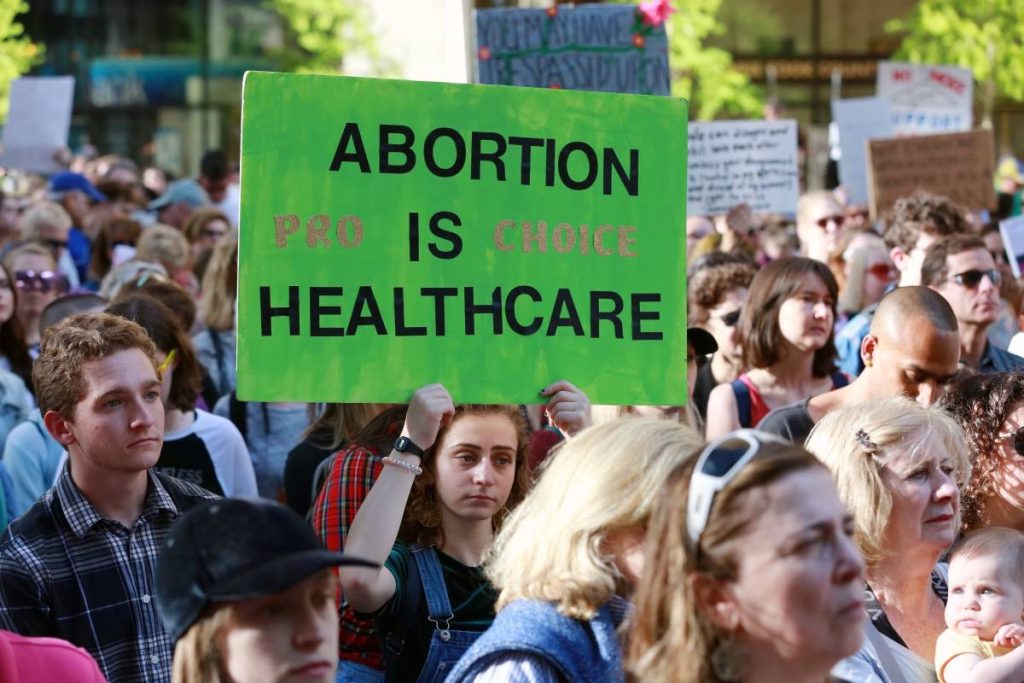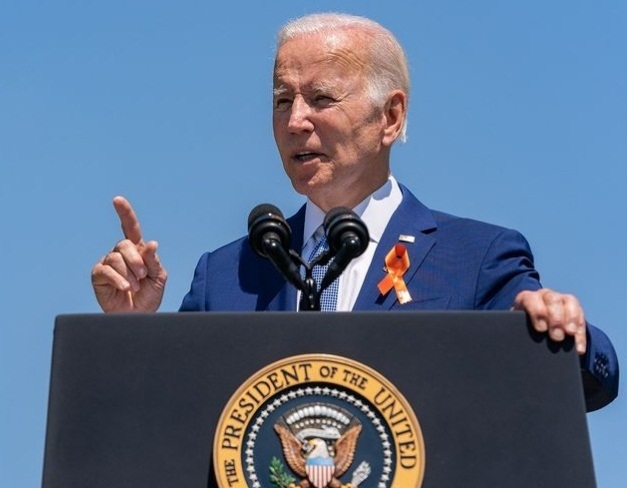Administration shackled by a ban on federal funding for most abortions, a conservative-leaning Supreme Court inclined to rule against abortion rights …reports Asian Lite News
The Biden administration is still actively searching for ways to safeguard abortion access for millions of women, even as it bumps up against a complex web of strict new state laws enacted in the months after the Supreme Court stripped the constitutional right.
Looking to seize on momentum following a midterm election where voters widely rebuked tougher abortion restrictions, there’s a renewed push at the White House to find ways to help women in states that have virtually outlawed or limited the treatment, and to keep the issue top of mind for voters.
In reality, though, the administration is shackled by a ban on federal funding for most abortions, a conservative-leaning Supreme Court inclined to rule against abortion rights and a split Congress unwilling to pass legislation on the matter.
Meanwhile, frustration on the ground in the most abortion-restricted states is mounting.
“This is not going away anytime soon,” said Jen Klein of the Biden administration’s Gender Policy Council. “Tens of millions of Americans are living under bans of various sorts, many of them quite extreme, and even in states where abortion is legal, we’re all seeing the impact on providers and on systems being loaded by people who are coming across state lines.”
Administration officials are meeting Tuesday and Wednesday with state lawmakers ahead of their 2023 sessions, including in states with more extreme bans on the table, and will discuss safeguarding rights and helping women access care as top issues. The meetings follow sit-downs with roughly nine governors, attorneys general and Democratic state legislators from more than 30 states.

The administration, meanwhile, is implementing Biden’s executive orders signed in July and August that directed federal agencies to push back on abortion restrictions and protect women traveling out of their state to seek one, though some women’s rights advocates say it doesn’t go far enough.
And there are still other avenues left for the administration to explore, said Kathleen Sebelius, a former US health and human services secretary.
HHS might look to wield its power around federal protections for health care providers, life-saving abortions, abortion pills and travel for women in abortion-restricted states, she said. During her tenure, for example, the agency did some policy maneuvering to expand rights for same-sex couples, including a requirement that any hospitals receiving federal funds allow their patients to select a same-sex partner as a visitor, years before gay marriage was legalized.
“It’s amazing how broad a lot of the agency’s authorities are and how much creative thinking can go on,” Sebelius said.
Already, the Justice Department has sued Idaho over its restrictive abortion policy and indicted at least 20 people who have been accused of obstructing access to abortion clinics. Attorney General Merrick Garland has said he would protect the right for women to travel between states for medical care.
Veterans and their beneficiaries are able to access abortion, even in states that have outlawed it, through the Department of Veteran Affairs in cases where the woman’s life or health is at risk or in cases of rape or incest. The Defense Department will cover leave and travel costs for troops seeking abortions if they are not available in their state.
The Federal Trade Commission has sued at least one data broker for selling information that tracks people at reproductive health care clinics, while the Federal Communication Commission reminded 15 mobile carriers of privacy laws in a recent letter.
Perhaps most consequentially, the Department of Health and Human Services told hospitals they “must” provide abortions if a mother’s life is at risk. The agency cited federal law, called the Emergency Medical Treatment and Labor Act, or EMTALA, that requires medical facilities to provide treatment if a person may be in labor or faces an emergency health situation.
But “no executive action can replace a precedent of nearly 50 years,” Klein said. “The most important thing is to fight for national legislation.”
None is upcoming in the lame-duck session before Republicans take control of the House. And Biden is limited in what else he can do.
Indeed, the administration’s moves so far have made little difference in Ohio, said Kellie Copeland, the executive director at Pro-Choice Ohio. A law that would essentially ban abortion once fetal cardiac activity is detected is awaiting a court ruling. Currently, abortion is banned at 22 weeks, state Medicaid funds can’t be used for abortion and parental consent is required for a minor to receive care.














